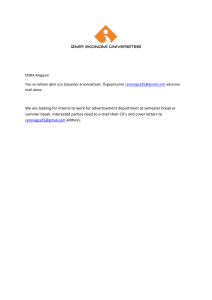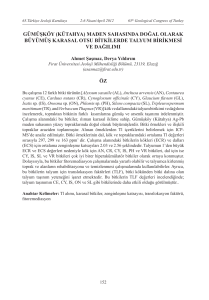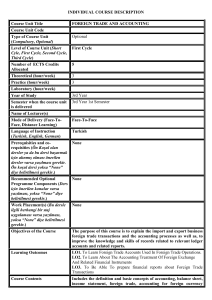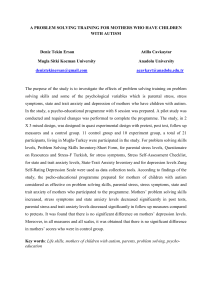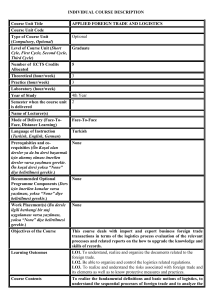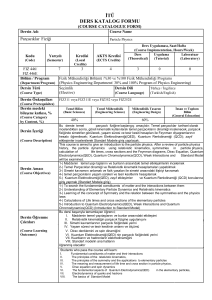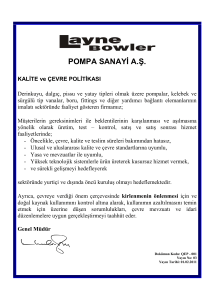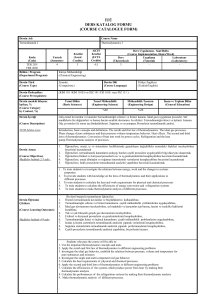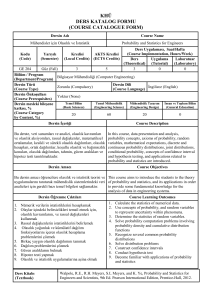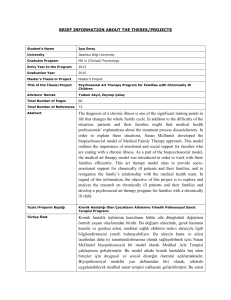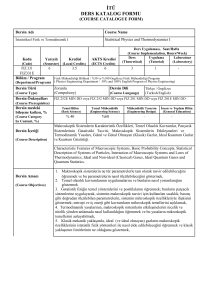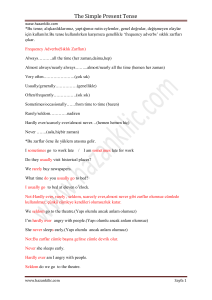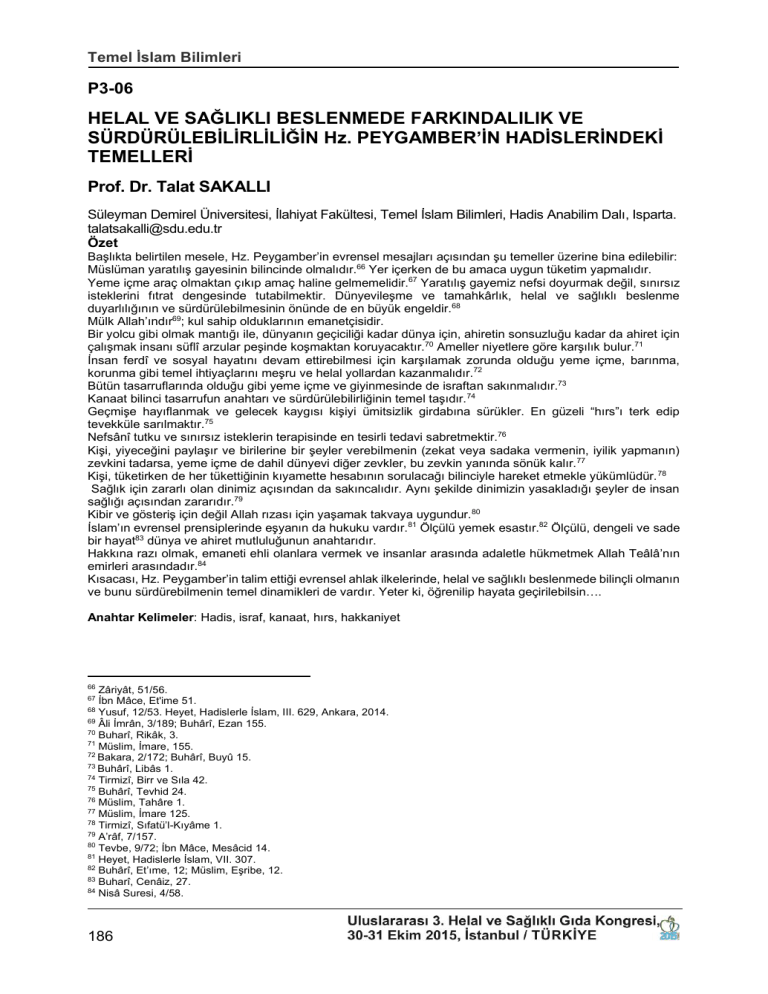
Temel İslam Bilimleri
P3-06
HELAL VE SAĞLIKLI BESLENMEDE FARKINDALILIK VE
SÜRDÜRÜLEBİLİRLİLİĞİN Hz. PEYGAMBER’İN HADİSLERİNDEKİ
TEMELLERİ
Prof. Dr. Talat SAKALLI
Süleyman Demirel Üniversitesi, İlahiyat Fakültesi, Temel İslam Bilimleri, Hadis Anabilim Dalı, Isparta.
talatsakalli@sdu.edu.tr
Özet
Başlıkta belirtilen mesele, Hz. Peygamber’in evrensel mesajları açısından şu temeller üzerine bina edilebilir:
Müslüman yaratılış gayesinin bilincinde olmalıdır.66 Yer içerken de bu amaca uygun tüketim yapmalıdır.
Yeme içme araç olmaktan çıkıp amaç haline gelmemelidir.67 Yaratılış gayemiz nefsi doyurmak değil, sınırsız
isteklerini fıtrat dengesinde tutabilmektir. Dünyevileşme ve tamahkârlık, helal ve sağlıklı beslenme
duyarlılığının ve sürdürülebilmesinin önünde de en büyük engeldir.68
Mülk Allah’ındır69; kul sahip olduklarının emanetçisidir.
Bir yolcu gibi olmak mantığı ile, dünyanın geçiciliği kadar dünya için, ahiretin sonsuzluğu kadar da ahiret için
çalışmak insanı süflî arzular peşinde koşmaktan koruyacaktır.70 Ameller niyetlere göre karşılık bulur.71
İnsan ferdî ve sosyal hayatını devam ettirebilmesi için karşılamak zorunda olduğu yeme içme, barınma,
korunma gibi temel ihtiyaçlarını meşru ve helal yollardan kazanmalıdır.72
Bütün tasarruflarında olduğu gibi yeme içme ve giyinmesinde de israftan sakınmalıdır.73
Kanaat bilinci tasarrufun anahtarı ve sürdürülebilirliğinin temel taşıdır. 74
Geçmişe hayıflanmak ve gelecek kaygısı kişiyi ümitsizlik girdabına sürükler. En güzeli “hırs”ı terk edip
tevekküle sarılmaktır.75
Nefsânî tutku ve sınırsız isteklerin terapisinde en tesirli tedavi sabretmektir.76
Kişi, yiyeceğini paylaşır ve birilerine bir şeyler verebilmenin (zekat veya sadaka vermenin, iyilik yapmanın)
zevkini tadarsa, yeme içme de dahil dünyevi diğer zevkler, bu zevkin yanında sönük kalır. 77
Kişi, tüketirken de her tükettiğinin kıyamette hesabının sorulacağı bilinciyle hareket etmekle yükümlüdür. 78
Sağlık için zararlı olan dinimiz açısından da sakıncalıdır. Aynı şekilde dinimizin yasakladığı şeyler de insan
sağlığı açısından zararıdır.79
Kibir ve gösteriş için değil Allah rızası için yaşamak takvaya uygundur. 80
İslam’ın evrensel prensiplerinde eşyanın da hukuku vardır.81 Ölçülü yemek esastır.82 Ölçülü, dengeli ve sade
bir hayat83 dünya ve ahiret mutluluğunun anahtarıdır.
Hakkına razı olmak, emaneti ehli olanlara vermek ve insanlar arasında adaletle hükmetmek Allah Teâlâ’nın
emirleri arasındadır.84
Kısacası, Hz. Peygamber’in talim ettiği evrensel ahlak ilkelerinde, helal ve sağlıklı beslenmede bilinçli olmanın
ve bunu sürdürebilmenin temel dinamikleri de vardır. Yeter ki, öğrenilip hayata geçirilebilsin….
Anahtar Kelimeler: Hadis, israf, kanaat, hırs, hakkaniyet
Zâriyât, 51/56.
İbn Mâce, Et'ime 51.
68
Yusuf, 12/53. Heyet, Hadislerle İslam, III. 629, Ankara, 2014.
69
Âli İmrân, 3/189; Buhârî, Ezan 155.
70
Buharî, Rikâk, 3.
71
Müslim, İmare, 155.
72
Bakara, 2/172; Buhârî, Buyû 15.
73
Buhârî, Libâs 1.
74
Tirmizî, Birr ve Sıla 42.
75
Buhârî, Tevhid 24.
76
Müslim, Tahâre 1.
77
Müslim, İmare 125.
78
Tirmizî, Sıfatü’l-Kıyâme 1.
79
A’râf, 7/157.
80
Tevbe, 9/72; İbn Mâce, Mesâcid 14.
81
Heyet, Hadislerle İslam, VII. 307.
82
Buhârî, Et’ıme, 12; Müslim, Eşribe, 12.
83
Buharî, Cenâiz, 27.
84
Nisâ Suresi, 4/58.
66
67
186
Basic Islamic Sciences
P3-06
THE FOUNDATIONS OF AWARENESS AND MAINTAINABILITY ON
HALAL AND HEALTHY NUTRITION IN HADITHS OF PROPHET
MUHAMMAD
Prof. Dr. TALAT SAKALLI
Süleyman Demirel University, Faculty of Theology, Department of Basic Islamic Sciences
Lecturer for Hadith Department
talatsakalli@sdu.edu.tr
Abstract
The issue stated in the title can be based on this foundations in terms of the universal messages
of the Prophet Muhammad:
Each Muslim individual has to be aware of his/her objective of creation and he/she has to
consume parallel to this objective.
The nutrition should only be the means not the purpose. Our goal of creation is not to satisfy the
self but is to keep the ceaseless desires of the self within the equilibrium of natality. Secularization
and covetousness is the greatest obstacle for the sensitiveness of halal and healthy nutrition and
for its maintainability.
Allah is the Owner of all sovereignty and the human being is the depository for what he/she has.
Thinking that the human being is only a passenger who stopped over on Earth, working for the
world as far as its temporariness and working for the afterlife as far as its infinitude would protect
the human being from pursuing servile desires. Deeds depends on intentions.
Human being has some basic needs to proceed his/her individual and social life such as nutrition,
sheltering, protection and he/she should gain these needs from legitimate and halal ways.
Human being should refrain from wastage on his/her nutrition and clothing like in all his/her other
expenditures.
Consciousness of modesty is the key for saving and keystone of the maintainability.
Regret for the past and the anxiety for the future drag the individual to the swirl of despair. It is
better to abandon greed and hold on to resignation.
The most effective therapy on carnal passions and ceaseless desires is to be patient.
If the individual share his/her food and enjoy the pleasure of giving something to someone (giving
alms, doing favor), all the other worldly pleasures including the eating and drinking would pale
beside this pleasure.
While consuming something, the individual is liable for acting within the consciousness of being
judged for what he/she consume in the afterlife.
Which is harmful for health is also inconvenient in terms of our faith. Likewise, the things which
are forbidden by our faith is also harmful for human health.
Living for the sake of Allah instead of living for arrogance and vanity is appropriate for devotion
(taqwa).
The things have rights within the universal principles of Islam. Eating temperate is the essence.
Temperate, balanced and simple life is the key for the eudaemonia of both worlds.
Complying with his/her share, rendering back the trusts to those to whom they are due and ruling
with justice among men are the commands of Allah.
Briefly, the basic dynamics to be conscious on halal and healthy nutrition and to maintain it are
found in the universal codes of ethics which are taught by the Prophet Muhammad. We just have
to learn and put into practice.
Keywords: Hadith, waste, belief, ambition, fairness
187

